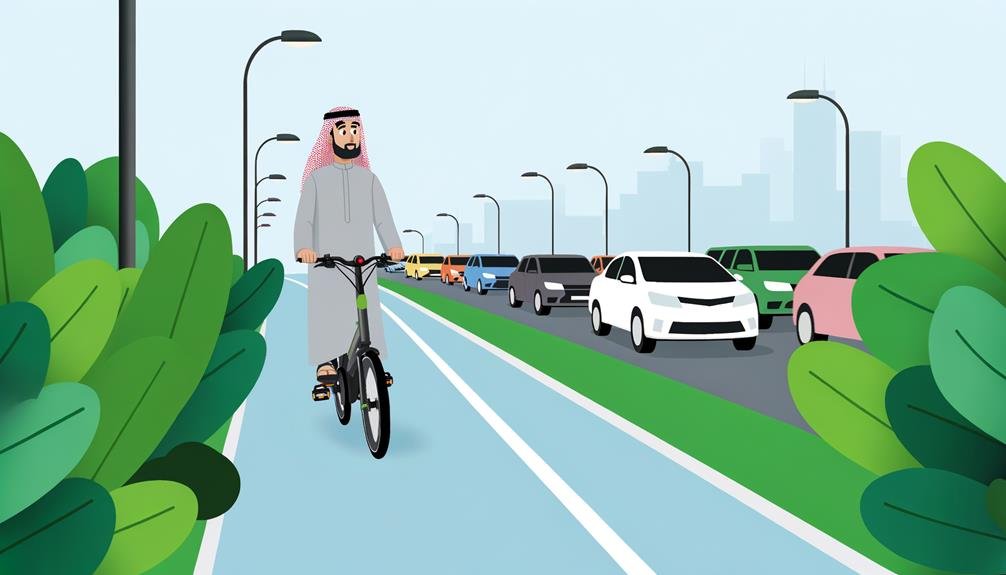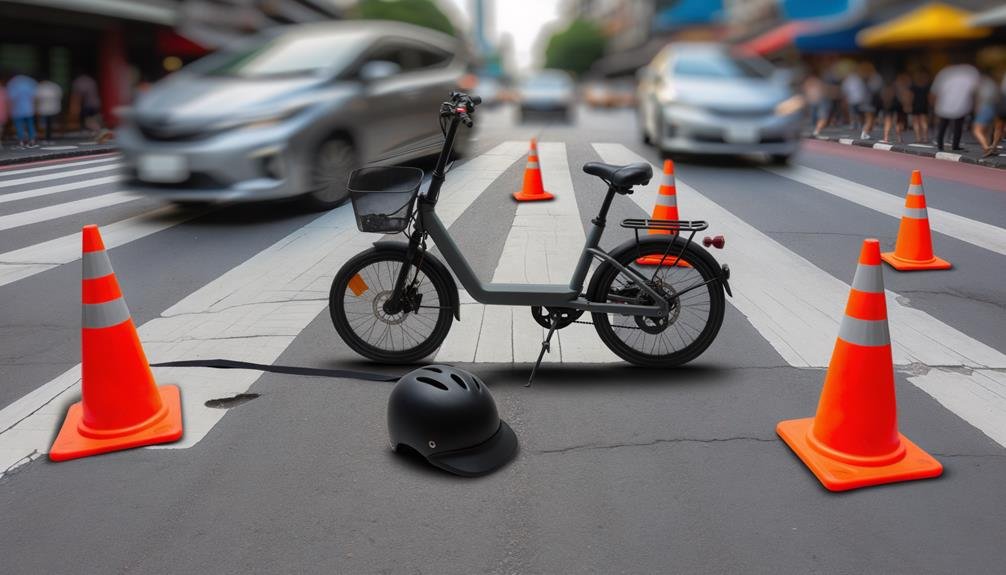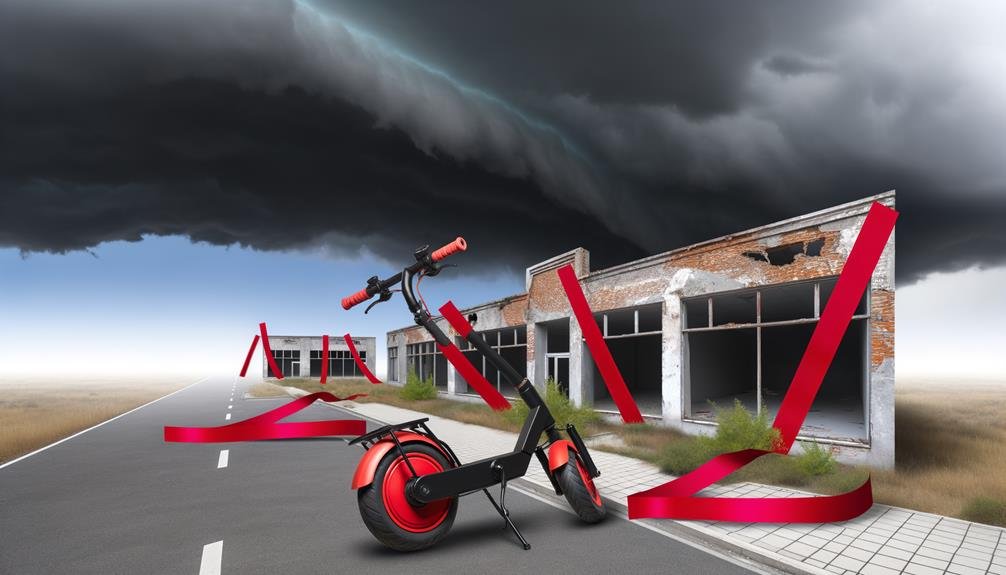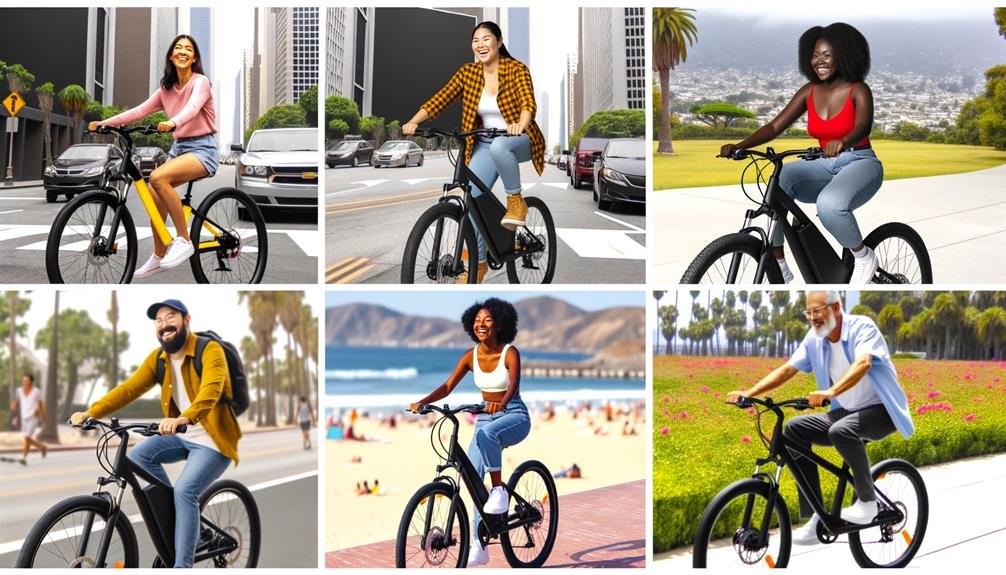Charles Miller is a veteran bike enthusiast with over 12 years of experience dealing with bikes as a mechanic. Despite immense love and expertise for...
Have we ever paused to consider the legal implications of riding an eBike on the road? As the popularity of electric bikes soars, we're faced with the task of navigating the diverse, and often confusing, regulations that govern their use.
Across the globe, laws vary greatly, with some places fully embracing this eco-friendly mode of transport, while others impose strict restrictions.
As such, it's crucial that we truly understand the legal landscape before we hit the road. But, where do we start and what exactly should we be looking for?
Key Takeaways
- Ebikes in Texas are classified into three categories: Class 1, Class 2, and Class 3.
- Class 1 and Class 2 ebikes are allowed on public roads.
- Class 3 ebikes, with a maximum speed of 28 mph, require riders to be at least 16 years old and helmets are mandatory for those under 18.
- It's important to stay updated on local regulations as they can be modified by the local authority or government.
Understanding Ebike Road Legality
Navigating the legal landscape of ebike road legality in Texas can seem complex at first, but it's important to understand that they're classified into three categories – Class 1, Class 2, and Class 3 – each with its own specific regulations. When we ride an electric bike, we must adhere to these laws regarding their usage to ensure we're within the law.
Class 1 and 2 e-bikes are permitted on public roads, just like their non-electric counterparts. However, Class 3 e-bikes, with a maximum speed of 28 mph, require riders to be at least 16 years old, and helmets are compulsory for those under 18. This is an important aspect of E-bike Laws that we, as e-bike riders, must be aware of.
Currently, riding an electric bike on non-motorized trails is prohibited, but proposed legislation may change this. It's important for us to keep up-to-date with these changes, as the local authority or local government can modify these rules.
Hence, as riders and retailers, understanding ebike road legality ensures our compliance, safety, and contributes to a positive ebike culture.
Safety Guidelines for Ebikes
Having understood the legalities of ebike riding, let's now focus on another significant aspect – adhering to safety guidelines while enjoying our ebikes. Ensuring we ride our electric bikes safely not only protects us but also promotes a positive biking culture.
Key safety measures must be followed to maximize the security features of our ebikes. Firstly, helmets are a must, irrespective of the rider's age. They provide crucial head protection in the unfortunate event of an accident. Secondly, just as with any vehicle, obeying traffic laws and signals is non-negotiable. This includes being mindful of speed limits, especially considering the electric motorized power of ebikes.
As ebike riders, we must also be aware of the specific class of our bikes and its associated speed limits. This knowledge enables us to ride responsibly and legally. Lastly, local regulations and restrictions vary, and we must familiarize ourselves with these to ensure compliance.
| Safety Guideline | Why it's Important | How to Follow |
|---|---|---|
| Wear a Helmet | Protects the head in case of accidents | Always wear a helmet while riding |
| Obey Traffic Laws | Ensures safety on the road | Follow traffic signals and signs |
| Know Your Bike's Class and Speed Limit | Helps ride safely and legally | Check bike's class and adhere to its speed limit |
| Familiarize with Local Regulations | Prevents legal issues | Learn and follow local ebike rules |
Benefits of Ebikes on Roads

Often overlooked, the benefits of using ebikes on roads are numerous and significantly impact not only our personal health and finances, but also contribute positively to the environment. Depending on the ride class, a Texas electric bike can comfortably cruise in bike lanes, maintaining a motor speed that's within the legal speed limit. This makes ebikes an excellent choice for commuting and running errands, offering a balance between rider safety, speed, and convenience.
The environmental benefits of ebikes on roads can't be overstated. Riding an electric bicycle helps reduce carbon emissions and air pollution. They're an environmentally friendly option that aligns with our collective responsibility to protect our planet.
Let's delve into the benefits of riding ebikes on roads:
- Health and Fitness: Riding ebikes offers physical exercise, promoting overall health and fitness.
- Cost-Effective: With various classes of electric bikes available, they offer a cost-efficient option for personal transportation.
- Fun and Exciting: Beyond practicality, ebikes add an element of excitement and fun to our daily travel, making each ride class a unique experience.
Choosing the Right Ebike
When it comes to choosing the right ebike, several factors come into play, such as the intended use, battery range, motor power, and the weight and size of the bike. To make an informed choice, think about where you'll be allowed to ride and how far you're planning to travel regularly.
For instance, if you're considering commuting, you'll need an ebike with a solid battery range and a durable motor that can maintain a steady speed. If you're into off-road trails, you'd want an ebike that's robust, has good suspension, and can handle a bit of rough terrain.
| Class of electric bikes | Top Speed | Need a license |
|---|---|---|
| Class 1 | 20 mph | No |
| Class 2 | 20 mph | No |
| Class 3 | 28 mph | Yes |
Above is a simple guide to help you understand the different classes of electric bicycles. To ride bikes safely and within the law, note that ebikes in the Class 3 category require a license due to their top speed of 28 mph, while the 59 motor and below in Class 1 and 2 do not.
Dealing With Ebike Accidents

Navigating the aftermath of an ebike accident can be a complex task, requiring immediate medical attention, potential legal guidance, and a sound understanding of ebike vehicle codes and state laws. It's paramount to remember that we're part of a broader community of riders, all seeking to enjoy the freedom and convenience ebikes offer.
Dealing with ebike accidents involves:
- Knowing the classes of electric bikes and their different regulations, as these can affect liability and whether a license to operate is needed.
- Understanding that it's illegal to ride under the influence. This helps the rider avoid potential legal issues, especially if an accident occurs.
- Mountain biking, where riders must navigate challenging terrain, requires additional safety measures to minimize the risk of accidents.
In the unfortunate event of an accident, riders must prioritize their health, seeking immediate medical attention. Legal guidance may also be necessary, particularly if the accident involves another bike on a bike path or a motor vehicle.
As a community, we can help each other stay aware and informed about the rules and regulations that govern our shared passion for ebiking.
Frequently Asked Questions
Can You Use an Electric Bike on the Road?
Sure, we can use an ebike on the road, observing safety measures and roadside etiquette. Regular maintenance, insurance, and understanding battery lifespan are essential. They're eco-friendly, beneficial for commuting, and have advanced features compared to regular bikes.
Are Electric Bikes Street Legal in the Us?
Yes, we can ride e-bikes on roads in the U.S., but it's vital we understand the legal implications, follow traffic laws, and meet licensing requirements. Ebike regulations vary by state, so we must stay informed.
Can I Ride an Electric Bike in Texas?
Yes, we can ride an eBike in Texas. We must follow Texas eBike regulations, adhere to safety measures, and ensure our eBikes are maintained. No specific license is needed, but insurance is recommended.
What Is the Speed Limit on Ebikes in Nc?
We're not certain about NC's specific speed regulations for ebikes. However, it's crucial we adhere to local ordinances, understand our ebike's classification, and ensure our safety equipment's on point for responsible road sharing.
Conclusion
In conclusion, we've seen how ebikes can be both a fun and efficient way to travel on roads, as long as we adhere to local laws and safety guidelines.
Juxtaposing the convenience of ebikes with the responsibility they entail, it's clear that choosing the right ebike and dealing effectively with accidents can make our journey safer and smoother.
So, let's embrace the ebike revolution, but with an informed, detailed, and analytical approach.

Charles Miller is a veteran bike enthusiast with over 12 years of experience dealing with bikes as a mechanic. Despite immense love and expertise for his Tacoma, he rides his Trek Ebike more. Anytime you meet him, you’ll either hear him talking about Bikes, or writing about all things bikes and cars on this blog.
More Posts


